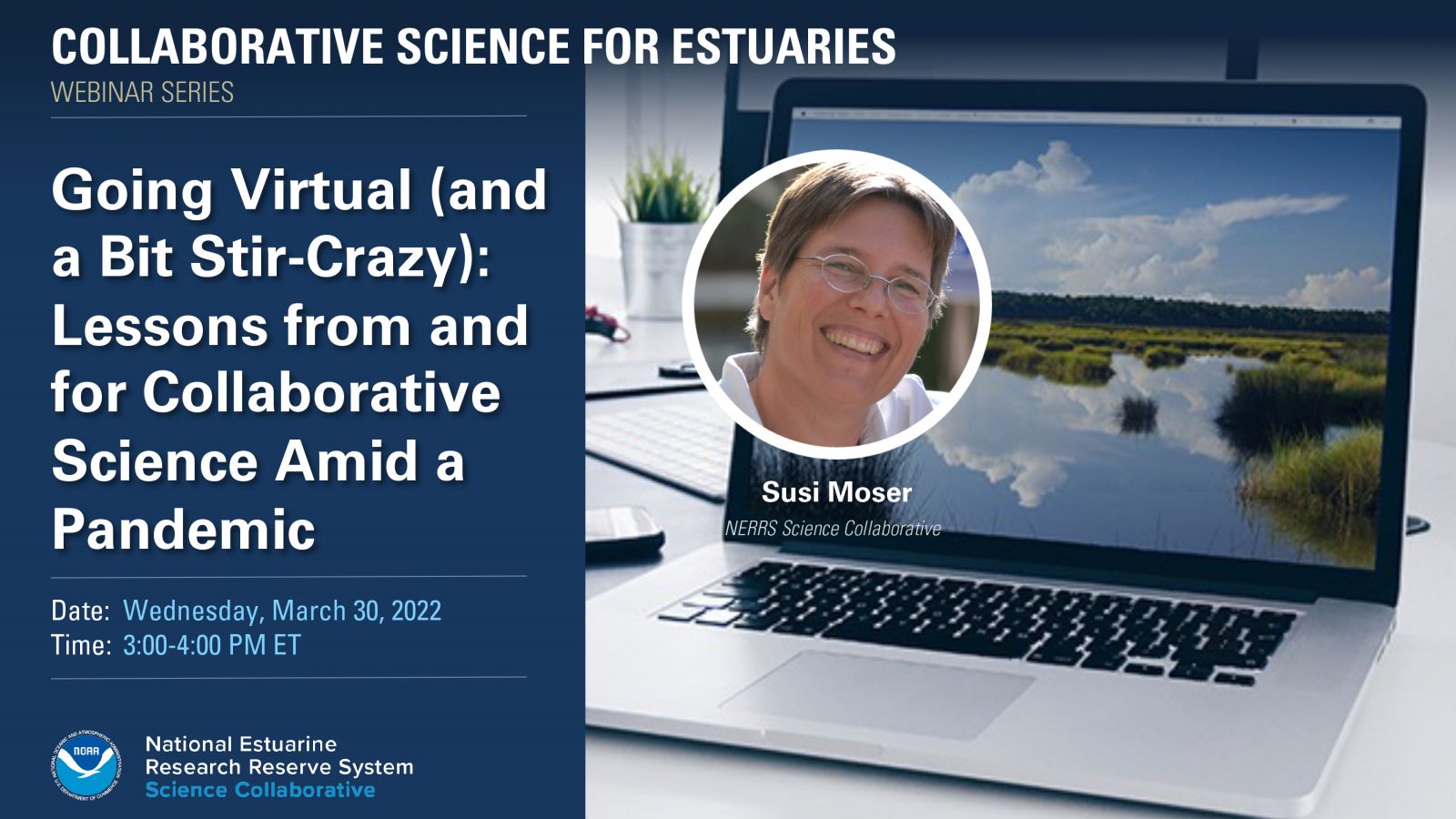 Webinar Description
Webinar Description
In 2020, Susanne Moser - with support from the NERRS Science Collaborative team - began a study to better understand how the COVID-19 pandemic has impacted collaborative science projects. While initially focused on the shift to virtual engagement, the study eventually expanded to assess the broader implications of the ongoing pandemic, the conduct and outcomes of collaborative science, and stakeholder engagement under such unusual and strenuous circumstances.
Given the continually and rapidly changing conditions from the onset of the pandemic until now, all projects have had to adjust - but some more substantially than others. Drawing on project check-in notes and in-depth interviews with project and collaborative leads, this webinar will report back from this study to share insights on:
- How projects adjusted
- Which techniques and technologies were used and proved useful
- What benefits and losses people experienced due to the shifts made during the pandemic
- Which successes and “failures ” (or shortcomings in virtual engagement) projects experienced; as well as
- Lessons learned and good advice interviewees offered to their colleagues.
The webinar will also invite questions on these findings and implications for collaborative science, both generally and for the National Estuarine Research Reserve System going forward.
Webinar Summary Products
- Webinar Recording (YouTube)
- Lessons and Advice for Virtual Engagement (PDF Handout)
- Persistent Questions About Virtual Engagement and Work (PDF Handout)
- Speaker Bios (Webinar Page)
- Slides and Q&A (PDF)
Questions about the content presented in this webinar can be directed to:
Susi Moser (website)